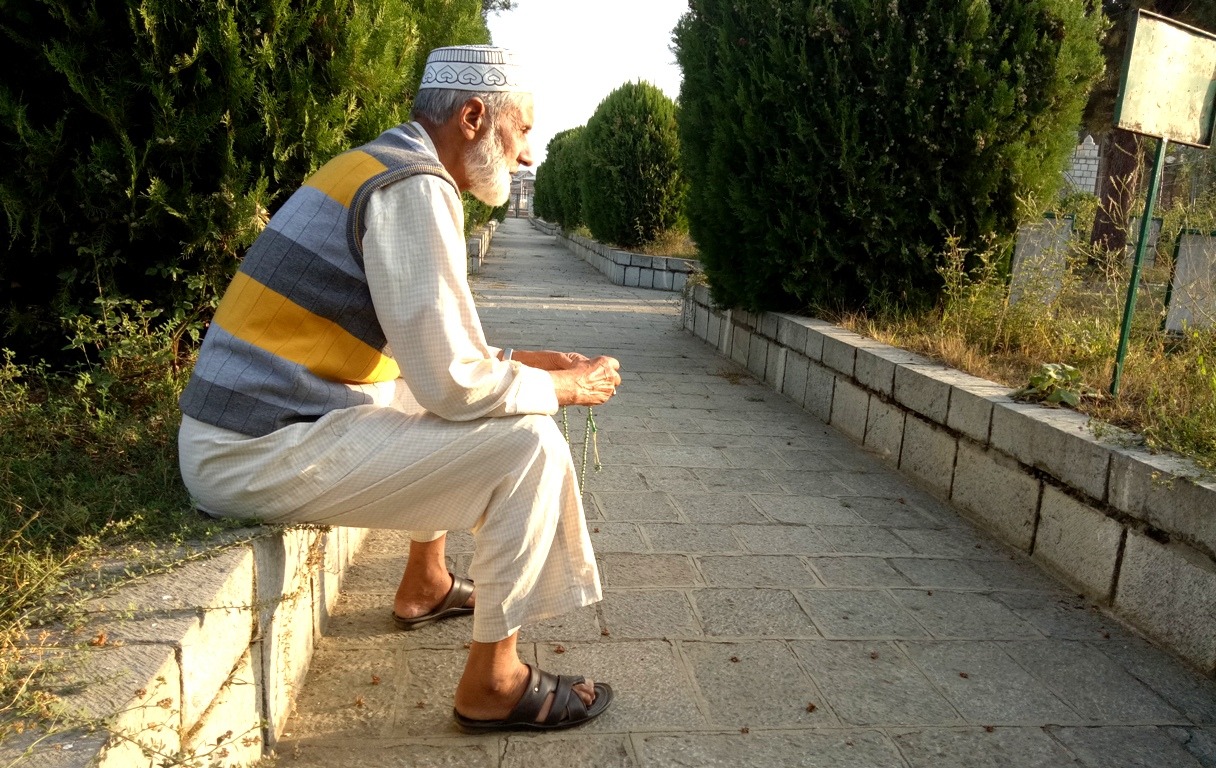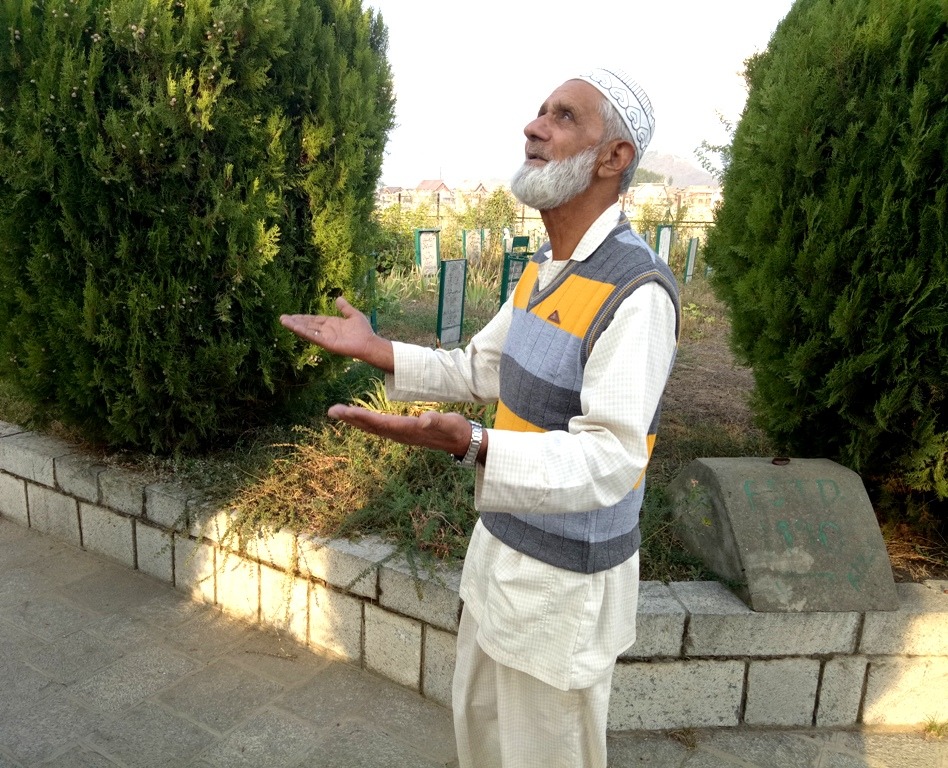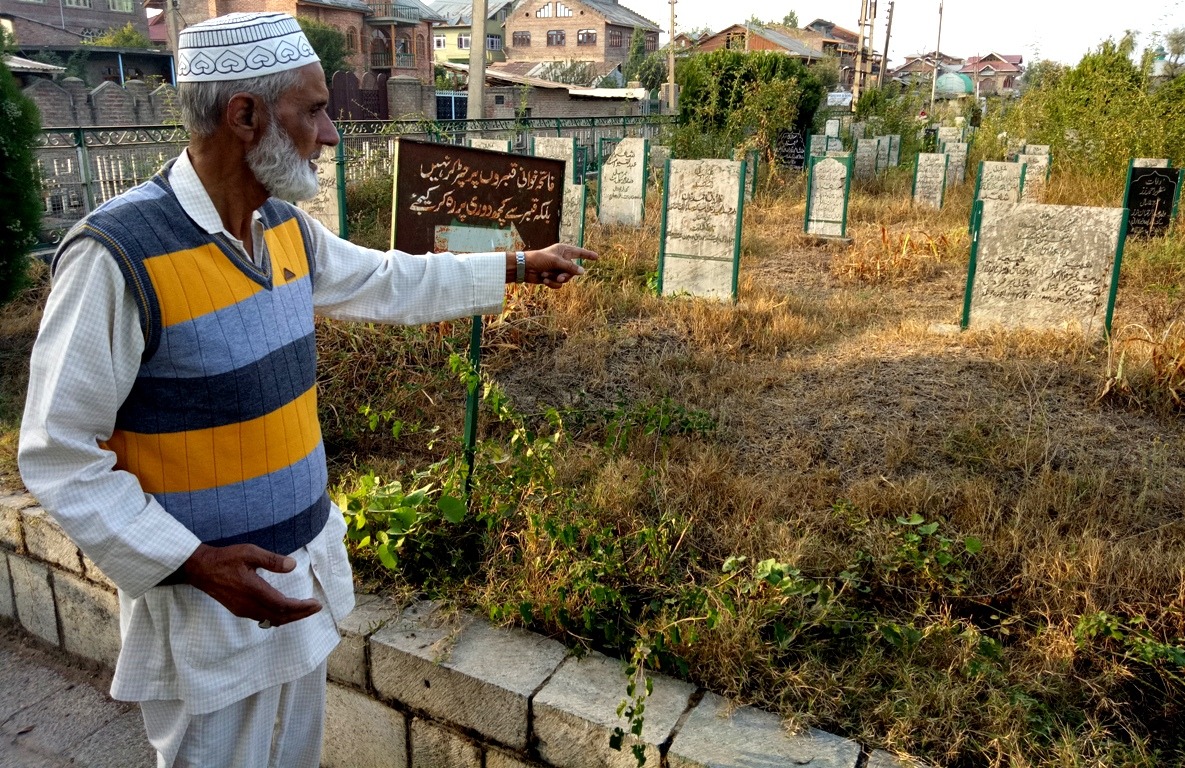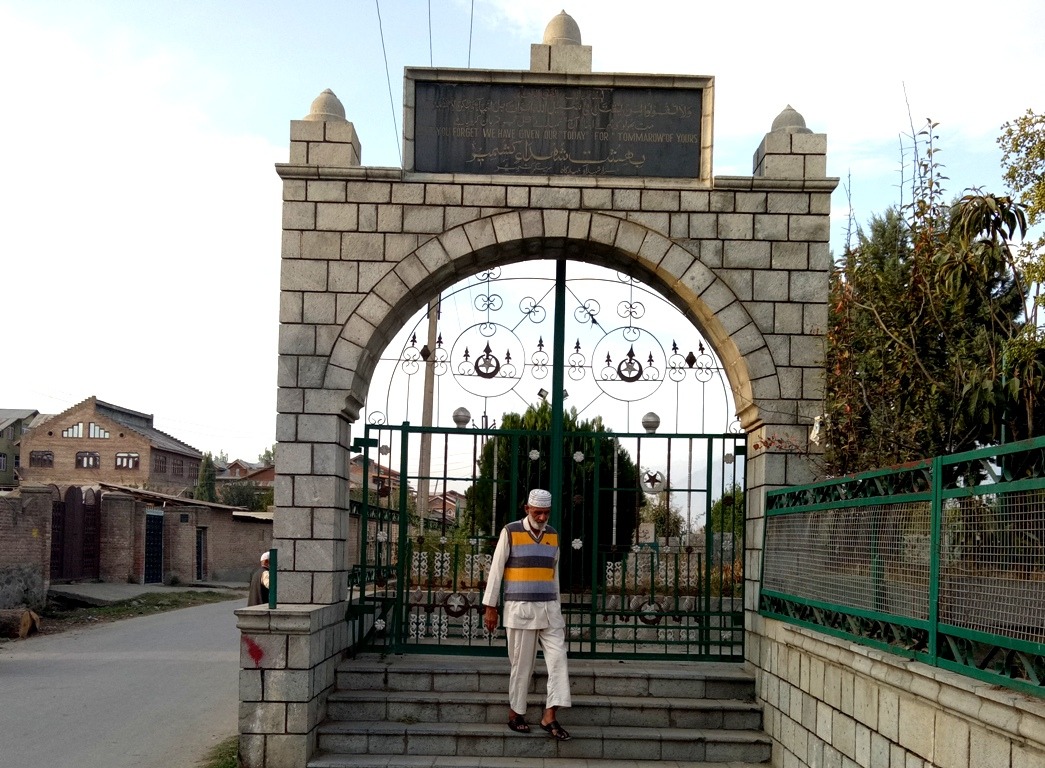As body bags began coming down from frontiers and forests during the nineties, sprawling cemeteries cropped up across Kashmir. Once such cemetery emerging right from Eidgah Srinagar saw a Kashmiri trader of Afghan descent to abandon his living and become the custodian of the cemetery packed with combatants and civilians alike.
At dusk in early nineties, six body bags were suddenly brought to Eidgah cemetery from the Kashmir frontiers—then swarmed by thousands singing the war ballad: Sarhad paar jaayenge… Kalashnikov laayen’ge (We’ll march down the frontiers to fetch Kalashnikov). The bodies were in bad state: burnt, rotting — probably killed a week before taken down for burial.
“One could hardly identify their faces,” says septuagenarian Habibullah Khan, one the characters thrown by the conflict, assuming the role of a gravedigger. “Five were already identified, but we waited for the family of the sixth one.”
Then a street-smart with nose for news, Khan realized that he just buried six insurgents gunned down on what people began calling ‘border’—the fantasy hinterland that became a de-facto conflict cemetery for thousands of the historic marchers.
“When the family of the sixth mujahid didn’t come, we decided to bury him,” says Khan, sitting amid the tombstone-crowded cemetery. Soon came a wailing family at Eidgarh, pleading Khan to open the grave. In the face of chest-beating mourning, Khan threw the grave open. The family saw the face of the martyr and said, ‘No, he isn’t our son!’
“But he was somebody’s son,” Khan says, pointing towards the grave, “whose burnt, worm-eating face had miraculously turned bright and smiling in grave. A heavenly fragrance came out of his grave at that time.” Without revealing it to anyone, Khan closed the grave.

FPK Photo/Arif Nazir
Those six fallen combatants were brought for burial soon after Kashmir rose up in armed rebellion against Indian State. Then in his late 40s, Khan would run his hardware and electrician store in downtown’s restive Rajouri Kadal — the ancestral address of Mirwaiz family.
As the death cycle escalated, Khan conceived an idea of setting up a separate burial ground for the people killed in military crackdowns. This “unregistered Bakra”—pro-Molvi Farooq, as Khan calls himself, spoke about his idea in an Eidgah gathering.
“People were surprised,” says Khan amid a graveyard silence. “Questions were raised, but in the end, the elders appreciated my idea.” That patch of land inside the playfield identified for executing Khan’s idea soon came to be called as Martyrs Graveyard—or, Mazar-E-Shohada.

FPK Photo/Arif Nazir
For the revered Khan of Afghan descent—whose grandfather had migrated from Kabul and settled in Kashmir years back, the cemetery soon became a second home apart from his small single-storey house located a few meters before the main gate of the cemetery.
As the death count mounted, he quitted his trade and devoted his life to bury martyrs and be their custodian. “Till date,” Khan says, “I must have buried almost 1500 people.” The first person he buried in Eidgah remains unidentified to date.
But taking care of the conflict and its casualty load for 27 years have taken health toll on him. But as a routine, Khan manages to spend almost an hour daily to recite prayers for the departed in the cemetery. His face reflects some ‘beyond the comprehension’ bond with those martyrs: “Shohada, che lalwen mein naari bissar / Zaani jigar meyoon” (Cradling martyrs is but my tall order / Only my soul knows its weight).
He remembers almost every grave.
“We have a 105-year-old man buried here who was killed at his home, and also grave of a 75-year-old lady,” he says. “There’s the grave of 2-year-old Saqib Bashir.”
What was his fault, he repeats in a loop, making the air mournful.
It’s because of this affection that he would enter into raging debates with the family members of the martyrs.
When the father of a slain militant commander from Rangreth Srinagar directed him to exhume his son’s body for burying it in their ancestral graveyard sometimes back, Khan told him, ‘had your son been a renegade, I would have opened his grave for you. But, he’s a martyr and I dare you to touch his grave!’ The man understood and left.

FPK Photo/Arif Nazir
Khan has been there among the martyrs amid sun, shower and snow—cleaning the epitaphs, crow droppings, watering the flowers and repairing the caved in graves. For all this, he is being paid a paltry Rs 1500 a month. He has no grievance.
But the changing times have apparently stigmatized his sacrifices. His family, including two daughters and a son, have been raised through financial woes—while he would be out preparing graves for free.
“People do call me Khan Saeb and show respect on my face,” says Khan, lowering his head. “But I’m being taunted behind my back for being a pity Mallikhuash [grave digger].”
Even his family is battling these perceptive notions, hence matchmaking for his younger daughter has become very difficult.

FPK Photo/Arif Nazir
But he has his reasons to carry what he loved to do. He still remembers that following day after those six insurgents were brought to Eidgah. That day at 4pm, another wailing family came claiming the unidentified person to be their son.
Khan reopened the grave after an old man told him: ‘If you stop us from seeing the face of our martyred son, we will complaint to Allah and his Prophet [SAW] on the Day of Judgment.’ This time, that young martyr had his eyes open and had a big smile on his face.
“He wasn’t breathing,” Khan recalls, “and yet, he seemed to be very much alive. His face was shining.” He wasn’t that family’s son either. After that, Khan began spending his days and nights in the cemetery. People questioned his rationale, but he could never explain it to anyone.
At the main gate inscribed with the message—‘least you forget, we have given our today for tomorrow of yours’—Khan pats on my shoulder, saying, “They’re my martyrs and I am their custodian.”
Like this story? Producing quality journalism costs. Make a Donation & help keep our work going.








